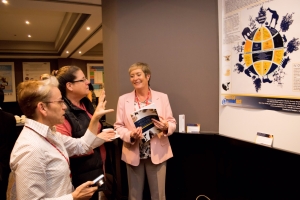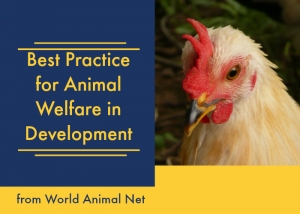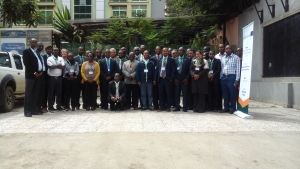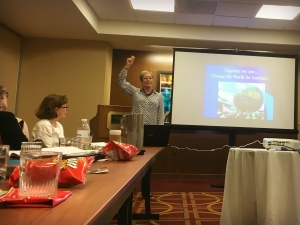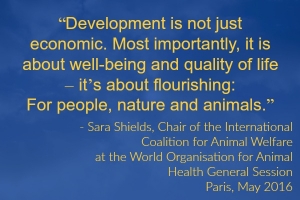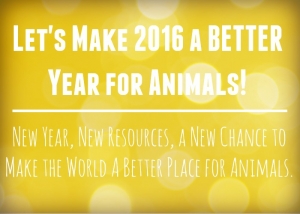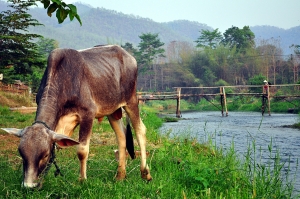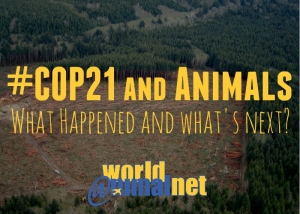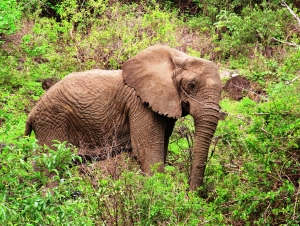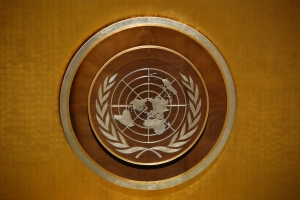Displaying items by tag: International Policy
World Animal Net Attends the 4th Global Animal Welfare Conference in Guadalajara, Mexico
Last week, I was excited to have had the opportunity to attend the World Organisation for Animal Health’s (OIE’s) 4th Global Animal Welfare Conference in Guadalajara, Mexico. Together with WAN co-founders Wim de Kok and Janice Cox, and Model Animal Welfare Act co-author Dr. iur. Sabine Lennkh, we joined numerous other animal protection organizations (APOs) in representing the interests of animals at the conference.
New! Best Practice in Animal Welfare
WAN is pleased to announce a new resource on our website! This is “Best Practice for Animal Welfare Development and Implementation", which pulls together some of the Best Practice (or more accurately “Best Available Practice”!) on animal welfare in order to help a wide range of stakeholders to incorporate animal welfare in their work.
First African Regional Animal Welfare Strategy Validated!
An African First!
WAN’s Janice Cox has just played a part in helping to shape the first Regional Animal Welfare Strategy (RAWS) covering Africa. Every continent but Africa has now agreed on a RAWS, leaving Africa lagging behind. However, the process is now off to a start, thanks to the Intergovernmental Authority on Development (IGAD), an African Regional Economic Community (REC) representing eight eastern African countries including the horn of Africa. IGAD is now the first REC in Africa to validate a RAWS.
WAN’s Janice Cox Presents at the National Council for Animal Protection’s Summit for the Animals in Washington, D.C.
Watch this Space: Notes on Animal Welfare and the World Organisation for Animal Health (OIE) 2016 General Session
At the end of May I attended the OIE’s 2016 General Session on behalf of WAN, which was one of a number of international animal protection organisations representing the International Coalition for Animal Welfare (ICFAW).
WAN’s 2015 Accomplishments: Ensuring a Bright Future for Animals Everywhere
Advocates around the world have made amazing strides for animals this year. From the U.S. ending government-funded experiments on chimpanzees, to the end of animal sacrifice in Nepal’s Gadhimai festival, 2015 was a big year for animals.
New WAN Resource on the OIE's Work
I was surprised to learn that many Animal Protection Organisations (APOs) do not recognise the importance of the World Organisation for Animal Health (OIE)’s work on animal welfare – and that some remain completely unaware of this work. This is the long-awaited international policy framework for Animal Welfare (AW), which we can use to push and prod obstinate governments to take action for the animals!
COP 21 and Animals: What Happened and What’s Next?
On the weekend of December 12 and 13, 2015, something monumental happened—representatives of 195 nations adopted a climate agreement in Paris at COP 21. For the first time in history, nearly every country on the planet is committed to working to limit dangerous greenhouse emissions to combat the worst impacts of climate change. More specifically, these nations have agreed to pursue efforts to slow the increase in global temperatures to 1.5 Celcius degrees above pre-industrial levels. Among the legally binding elements of the agreement are the requirements to submit emission reduction targets and regularly review those goals.
NGO-isation of the Resistance: Is the Animal Protection Movement a Casualty?
I had been nursing a burning desire to write another blog on the Animal Protection Movement for some weeks, when an excellent speech by Arundhati Roy came across my desk. Entitled ‘The NGO-isation of the Resistance’. Watch it now - it is a ‘must-view’!
World Animal Net Receives Special Consultative Status
The United Nations Economic and Social Council (ECOSOC) recently granted World Animal Net Special Consultative Status. Since 2001, when World Animal Net was first granted consultative status, we have worked to build partnerships and collaborative relations at the United Nations. Our elevated status will increase our capacity to represent animal protection interests through intergovernmental advocacy. We are also pleased that FOUR PAWS International, another animal protection organization, has also recently received Special Consultative Status.

